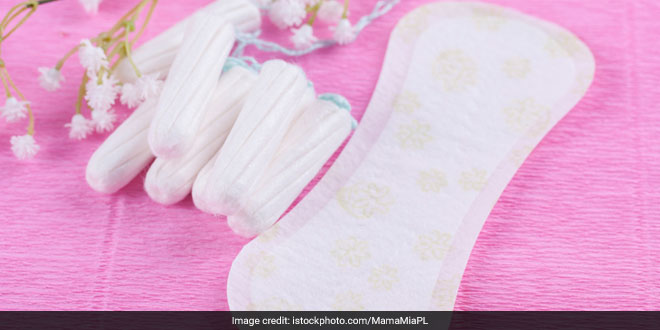Kolkata: There is a need to break the culture of silence around menstruation as the start of the cycle actually empowers women as they know they now have the power to procreate, speakers said at an awareness campaign in Kolkata on Monday.
The campaign ‘Let us talk about Periods’, organised by the UNICEF on the occasion of World Menstrual Hygiene Day, brought together bureaucrats, women’s rights activists and experts in a bid to sensitise women as well as men about the natural process considered a taboo in our country.
It is usually termed a women’s issue and male members of the family, of the community, even male members of the administration they usually don’t talk about this subject. But until and unless it is on an even platform where both male and female members can talk openly on these issues probably the culture of silence will never be broken, said Dibyendu Sarkar, Additional Secretary, Department of Panchayat and rural development.
Also Read: On Menstrual Hygiene Day, Twinkle Khanna Unveils A Short Film ‘First Period’ With A Twist
There is a culture of silence on this particular issue even among the women. People usually feel shy about the positive aspects of periods as well the complications arising out of periods. This results in different unhygienic practices, contaminations and infections.
“UNICEF recognises that menstrual hygiene is fundamental to the dignity and well-being of women and girls and an important part of the basic hygiene, sanitation, and reproductive health services to which every woman and girl has a right, said Chief of UNICEF Office for West Bengal Mohammad Mohiuddin.
There are several myths in our society surrounding periods. It is a very common practice to link periods with being unwell, but it is a normal biological process.
Also Read: 23 Million Women Drop Out Of School Every Year When They Start Menstruating In India
Menstruation is not a disease. Even I was told that if you have periods when you are in school and you are not prepared for it, tell your teacher that ‘shorir-khaarap hoyeche'(I am unwell). But it is not, it is like any other day, except some women might feel uncomfortable, said Ananya Chakraborti, West Bengal Commission for protection of Child Rights.
According to her, menstruation empowers a woman.
When we start to menstruate, we are empowered. We know that we have the power in us to procreate, we are now women and we know our full worth and that is what needs to be celebrated, added Ms Chakraborti.
Till date a woman cannot buy a packet of sanitary napkin from a chemist’s shop comfortably or say has to speak a little low and the packet is wrapped with paper. If a girl says it out loud she will attract undue attention so mostly they prefer to wait.
Why should I wait half an hour in the pharmacy making sure I don’t unruffle the feathers of whoever comes in the pharmacy and make sure I get my privacy which is not even required. This is something that all girls go through most of their lives, said Choten Lama, IAS, Secretary Panchayat and Rural Development Department.
The taboos on menstruation limits a nation as a whole, you are just pulling back an entire gender by saying that during these five days society stops you and approves of not contributing positively fully of what you can, she added.
The discussion on World Menstrual Hygiene Day witnessed many male participants. A young boy,
Sobhan Mukherjee, Kolkata’s very own ‘Padman’ was present. He has been installing indigenous sanitary pad-dispensing carton boxes in public toilets across the city to help the women during periods.


























